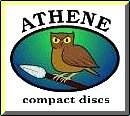Though he was a fine pianist, William Mathias wrote little for piano, if
one excepts his three piano concertos. His piano sonatas are in fact his
only large-scale piano works. Though they are on the whole very characteristic
of Mathias’ music-making, they nevertheless reveal other facets of it.
The Piano Sonata No. l Op. 23 (1963) is an imposing piece of some substance
described by Malcolm Boyd as "a work of tremendous power and sinew - one
of the more masculine of all Mathias’ pieces". The first movement is
the more extended and over-flows with vintage Mathias ideas. It is also a
highly personal reinterpretation of traditional sonata form design. It has
much energy though Mathias manages a good deal of contrast in the course
of this predominantly animated movement. The Andante semplice that follows
is a darker, brooding meditation in which the character of the Welsh Penillion
may be found. This comparatively simple movement is a moving example of
Mathias’ avowed Welshness. Characteristically the First Sonata ends
with a vigorous dance-like Toccata. The Piano Sonata No.2 Op. 46 (1969) is
still more impressive. It is in one single movement encompassing a fairly
traditional slow-fast-slow structure of which the animated central section
acts "as a turbulent development" (John Pickard). The final section gradually
slows down and provides a calmer recapitulation of the opening. A very impressive
piece indeed. In fact Mathias’ piano sonatas are among his finest and
nevertheless most neglected works. The present performances are therefore
most welcome for they shed yet some further light on Mathias’ oeuvre.
John Pickard (born in 1963) was a pupil of William Mathias. Though still
in his mid-thirties Pickard has composed a fairly impressive output that
contains three symphonies and four string quartets. His substantial Piano
Sonata was completed in 1987 and dedicated to Raymond Clarke who premiered
it in 1988. This ambitious work is much a young man’s work, some sort
of Stürm und Drang sonata into which the young composer threw all his
technical accomplishment and all his sincerity, even if the fairly traditional
music (none the worst for that!) does not also match the composer’s
avowed vindictive mood. This is however a remarkable achievement superbly
written for the piano which it exploits in an almost Rachmaninov-like manner.
The extended first part is a massive double set of variations ending somewhat
mysteriously. The second part is a vigorous Toccata which builds up to a
mighty conclusion. A Starlit Dome (1995) is some sort of updated nocturne
with much colourful and imaginative writing. A highly enjoyable piece that
should be taken-up by any marginally adventurous pianist.
Raymond Clarke’s superb performances are given a very fine recording
perfectly suited to this highly idiomatic piano writing. Unreservedly recommended
for the Mathias works and for this first glimpse into John Pickard’s
output.
Reviewer
Hubert Culot
tar.gif)
see also review by David Wright
|
Visit
Athene
|
|
 |

